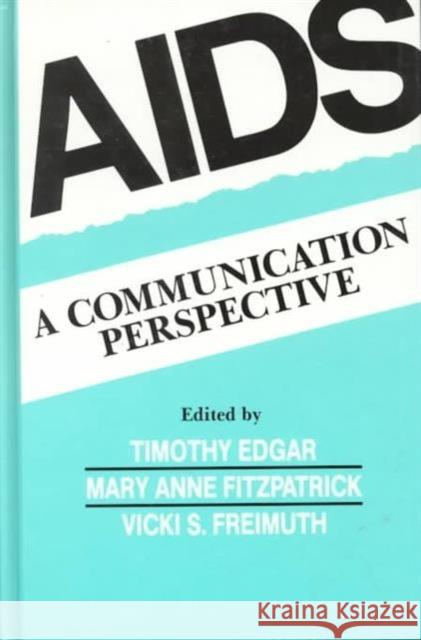Aids : A Communication Perspective » książka
Aids : A Communication Perspective
ISBN-13: 9780805809985 / Angielski / Twarda / 1992 / 250 str.
Aids : A Communication Perspective
ISBN-13: 9780805809985 / Angielski / Twarda / 1992 / 250 str.
(netto: 720,05 VAT: 5%)
Najniższa cena z 30 dni: 654,86
ok. 16-18 dni roboczych.
Darmowa dostawa!
Prevention through appropriate behavior is the best weapon available to fight further spread of HIV infection. However, individuals take necessary actions to prevent diseases such as AIDS only when they are properly informed and they feel motivated to respond to the information they possess. In order to achieve a clearer understanding of these two facets of the prevention process, this book examines the interplay of the messages individuals receive about AIDS at the public level and the messages exchanged between individuals at the interpersonal level. The specific purpose of the book is to provide a theoretical and conceptual foundation for understanding the pragmatic concerns related to the AIDS crisis in the United States and other parts of the world. The book represents the first systematic examination of how theory informs our understanding of AIDS and communication processes. Contributors explore the issues from a variety of theoretical and conceptual viewpoints. Their goal is to stimulate thought which will lead to the pragmatic application of the ideas presented.The chapters focus on four general communication concerns: * interpersonal interaction as it relates to choices individuals make about safer sex practices, * theory and practice of public campaigns about AIDS, * intercultural issues, and * critical and descriptive approaches for understanding news coverage of AIDS.
Prevention through appropriate behavior is the best weapon available to fight further spread of HIV infection. However, individuals take necessary actions to prevent diseases such as AIDS only when they are properly informed and they feel motivated to respond to the information they possess. In order to achieve a clearer understanding of these two facets of the prevention process, this book examines the interplay of the messages individuals receive about AIDS at the public level and the messages exchanged between individuals at the interpersonal level.
The specific purpose of the book is to provide a theoretical and conceptual foundation for understanding the pragmatic concerns related to the AIDS crisis in the United States and other parts of the world. The book represents the first systematic examination of how theory informs our understanding of AIDS and communication processes. Contributors explore the issues from a variety of theoretical and conceptual viewpoints. Their goal is to stimulate thought which will lead to the pragmatic application of the ideas presented.
The chapters focus on four general communication concerns:
* interpersonal interaction as it relates to choices individuals make about safer sex practices,
* theory and practice of public campaigns about AIDS,
* intercultural issues, and
* critical and descriptive approaches for understanding news coverage of AIDS.











